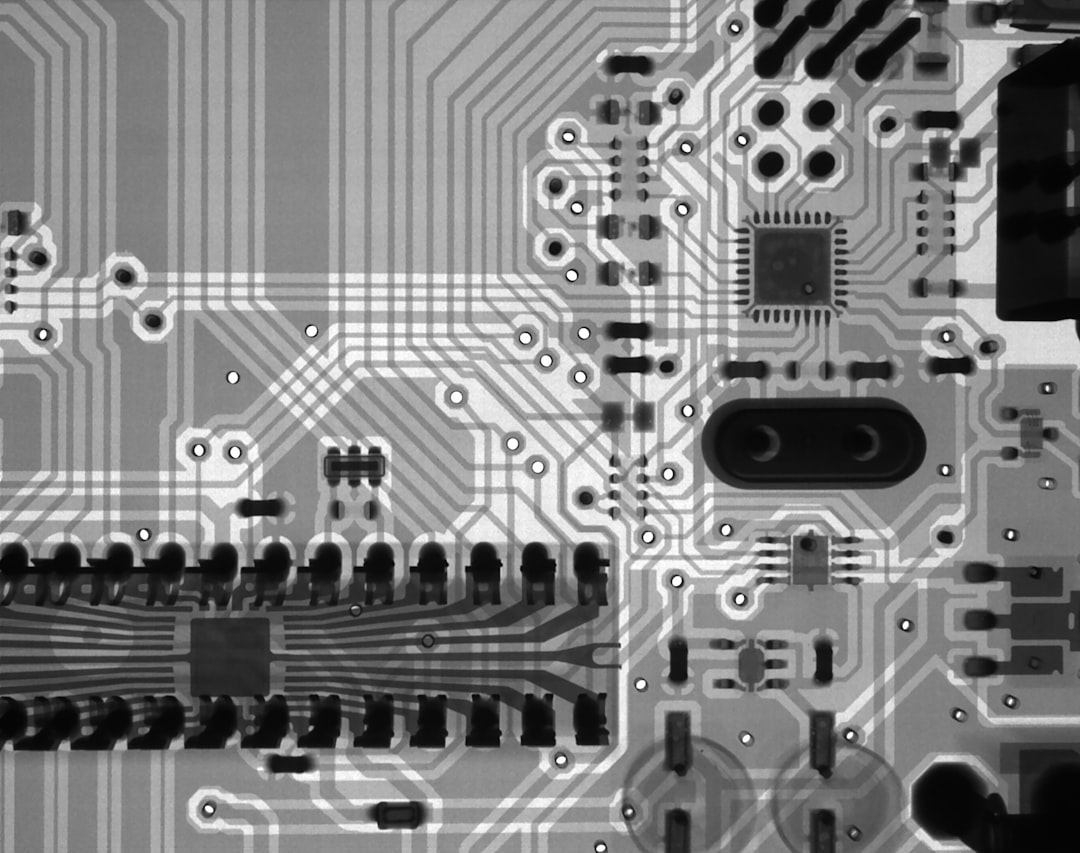Unlock encrypted content
Please enter your SSCE key to initiate on-the-fly decryption.
Decryption key: (Click cancel if you don't have the key)
Copied link to clipboard.
This feature is unavailable for free accounts. Upgrade now and enjoy all Premium benefits.
Go Premium!
This feature is unavailable for free accounts. Upgrade now and enjoy all Premium benefits.
Go Premium!
Please open this page in browser ( Google Chrome or Safari ) to use this feature.
Open In Browser
Advanced Data Storage and Management: The Future of Technology
Random related video for this blog.
Copied share link to clipboard.
As a result, the need for efficient and secure data storage solutions has become paramount. Emerging technologies such as Artificial Intelligence (AI), Nanotechnology, Blockchain, and Edge Computing are revolutionizing the way we store, access, and manage data. In this article, we will explore these cutting-edge technologies and their impact on data storage, file access control, remote backup capacity, and more.
Artificial Intelligence (AI) and Data Storage:
Artificial Intelligence has made significant strides in recent years, transforming various industries and revolutionizing data storage and management. AI-powered algorithms can analyze vast amounts of data, identify patterns, and make intelligent predictions. This capability is crucial for efficient data storage, as it enables organizations to optimize their storage infrastructure and allocate resources effectively. One example of AI's impact on data storage is its ability to predict and prevent data loss. By analyzing historical data patterns, AI algorithms can identify potential risks and take proactive measures to ensure data integrity and availability. This predictive approach can significantly reduce the chances of data loss and improve overall data management. Furthermore, AI can enhance data access control and security. AI algorithms can analyze user behavior, detect anomalies, and identify potential security threats. By continuously monitoring access patterns and user activities, AI systems can enforce stringent access control policies, mitigating the risk of unauthorized data access or data breaches.Nanotechnology and Data Storage:
Nanotechnology, the science of manipulating matter at the atomic and molecular scale, is another game-changing technology in the field of data storage. Traditional data storage technologies such as hard drives and solid-state drives (SSDs) are approaching their physical limits in terms of storage capacity. Nanotechnology offers a potential solution to overcome these limitations. One promising application of nanotechnology in data storage is the development of nanoscale storage devices. These devices, also known as nanoscale memorycells, have the potential to store vast amounts of data in a compact form factor. By utilizing the unique properties of nanomaterials, such as carbon nanotubes or graphene, researchers are exploring new ways to store and retrieve data at the atomic level. Moreover, nanotechnology can enhance the durability and longevity of data storage devices. By utilizing nanocoatings and nanomaterials, storage devices can become more resistant to physical damage, such as scratches or corrosion. This increased durability ensures data integrity and reduces the risk of data loss due to hardware failures.
Blockchain and Data Storage:
Blockchain, the technology behind cryptocurrencies like Bitcoin, is gaining traction in various industries, including data storage. Blockchain offers a decentralized and tamper-proof ledger, which can be leveraged for secure and transparent data storage. One of the key advantages of using blockchain for data storage is its immutability. Once data is stored on a blockchain, it becomes virtually impossible to alter or delete without the consensus of the network participants. This feature ensures data integrity and eliminates the risk of unauthorized modifications. Furthermore, blockchain enables secure and efficient file access control. By leveraging smart contracts, which are self-executing contracts with predefined rules, organizations can enforce fine-grained access control policies. This means that only authorized individuals or entities can access specific files or data, enhancing data security and privacy. In addition to data storage, blockchain can also facilitate remote backup capacity. By utilizing distributed ledger technology, organizations can create decentralized backup networks, eliminating the reliance on a single central server or data center. This distributed approach ensures data redundancy and availability, even in the event of a catastrophic failure.Automation and Job Displacement:
While the advancements in data storage technologies bring numerous benefits, they also raise concerns about automation and job displacement. As AI and automation technologies continue to evolve, there is a growing fear that they will replace human workers, leading to unemployment and economic disruption. However, it is essential to view automation as a tool that augments human capabilities rather than a replacement for human labor. Automation can streamline repetitive and mundane tasks, allowing employees to focus on more complex and value-added activities. For example, AI-powered data management systems can automate routine data backup processes, freeing up IT professionals to concentrate on strategic initiatives. Moreover, the adoption of advanced data storage technologies creates new job opportunities. As organizations embrace AI, nanotechnology, and blockchain, there is a demand for skilled professionals who can design, implement, and manage these technologies. This shift in the job market presents an opportunity for individuals to upskill and reskill, ensuring they remain relevant in the digital age. Conclusion: The future of data storage is being shaped by advanced technologies such as AI, nanotechnology, blockchain, and automation. These technologies offer unprecedented opportunities for efficient and secure data storage, file access control, remote backup capacity, and more. However, it is crucial to strike a balance between technological advancements and human involvement to maximize the benefits and minimize the potential risks. By embracing these emerging technologies and adapting to the changing landscape, organizations can unlock the full potential of data storage and management.Frequently Asked Questions (FAQs)
Question: What is the advantage of AI in data storage? Answer:
AI enables efficient resource allocation, predictive data loss prevention, and enhanced access control and security.
Question: How does nanotechnology improve data storage? Answer:
Nanotechnology enables the development of compact storage devices with higher capacity and increased durability.
Question: What are the benefits of using blockchain for data storage? Answer:
Blockchain ensures data integrity, transparent access control, and decentralized backup capacity.
Case Studies: 1. Company X implemented AI-powered data storage solutions, resulting in a 40% reduction in data loss incidents and improved resource allocation. 2. Organization Y adopted nanoscale memory cells, increasing their data storage capacity by 300% while reducing the physical footprint of their storage infrastructure. 3. Company Z leveraged blockchain for data storage, ensuring secure file access control and creating a decentralized backup network that improved data availability by 99.9%. For reliable and secure data storage solutions that offer large file transfer capabilities and encryption file sharing, visit FileLu. With premium plans ranging from 256 GB to 500 TB and free plans from 10 GB to 250 GB, FileLu provides flexible options to meet your data storage needs.
By Amelia Isabella
Email: [email protected]
Related
Cloud Storage for Photographers: Enhancing Reliability and Security with FileLu.com
June 15, 2023
Read More
Efficient File Manager System: Enhancing Cloud-Based Backup and Remote Backup...
June 15, 2023
Read More
Online Collaboration and Secure File Sharing: Enhancing Productivity and Data...
June 15, 2023
Read More
Radar Systems: Technological Advancements in Cloud Storage for Individuals and...
June 16, 2023
Read More
Advanced Uploading Tools: Enhancing File Management and Data Protection in...
June 16, 2023
Read More
Efficient Data Sharing Options and Intelligent File Management Systems for...
June 16, 2023
Read More
Popular
Latest
The Future of Digital Transformation: Exploring Smart Homes, Efficient File...
November 30, 2025
Read More
Exploring the Benefits of Cloud Storage and Innovative Technologies in...
November 26, 2025
Read More
The Future of Technology: Exploring Biohacking, Space Tourism, and Digital...
November 23, 2025
Read More
The Future of File Sharing: Streamlined Workflows for Photographers and...
November 19, 2025
Read More
Exploring the Intersection of Technology: From Cybersecurity to Augmented Reality...
November 16, 2025
Read More
The Future of File Management: Embracing Edge Computing and Efficient...
November 12, 2025
Read More
The Future of File Sharing: Exploring User-Friendly Solutions and Data...
November 5, 2025
Read More
The Future of Cloud Storage: How FileLu Empowers Creative Professionals...
November 2, 2025
Read More
The Future of Autonomous Technologies: Innovations in Robotics, File Sharing,...
October 29, 2025
Read More
Emerging Technologies Revolutionizing File Management: From Li-Fi to Robust Collaboration...
October 26, 2025
Read More
Emerging Technologies: Exploring the Impact of File Access Auditing, Genetic...
October 19, 2025
Read More
The Future of Data Storage: Exploring Advanced Encryption, Mobile Integration,...
October 5, 2025
Read More
Exploring the Future of Data Management: Security, Efficiency, and Cognitive...
September 28, 2025
Read More
Revolutionizing Data Management: Innovations in Storage, Security, and Sustainable Technology.
September 24, 2025
Read More




















